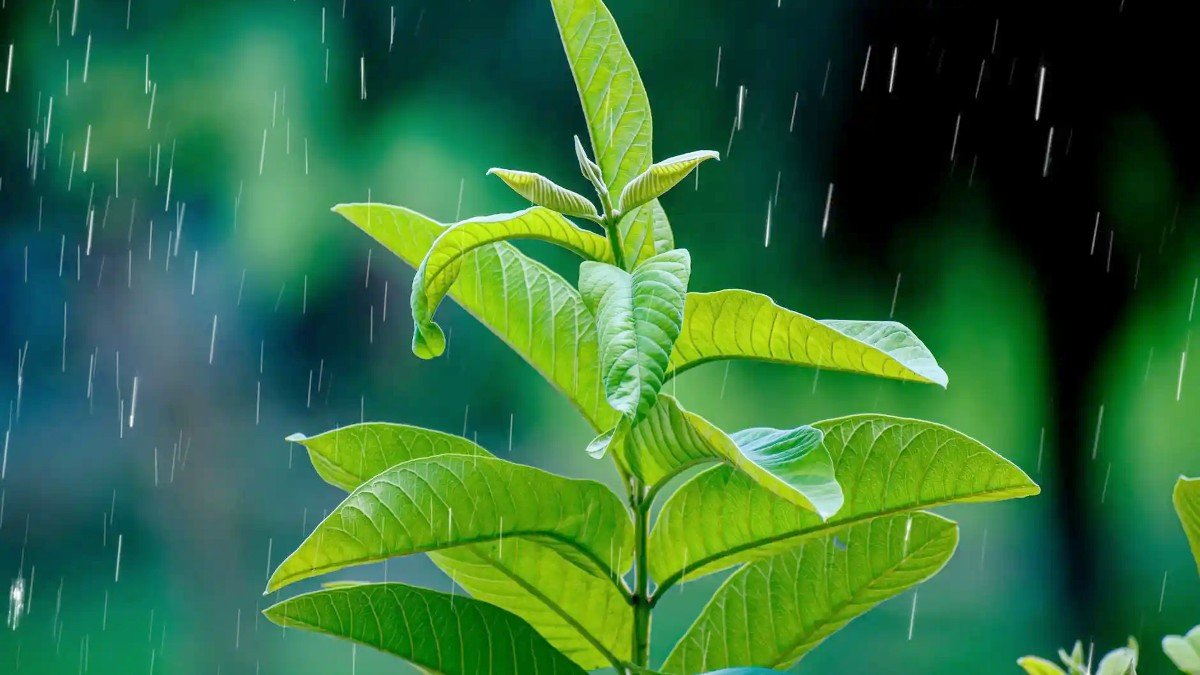Can Rainwater Be Harmful to Plants?

If you regularly garden, you know how important it is to water your plants.
But what should you do if you live in an area that experiences a lot of rainfall? Should you just count on that to keep your plants hydrated? Is this kind of water harmful to your plants?
Well, that’s what we’re going to talk about today.
Can rainwater be unhealthy for plants?
No, rainwater is healthy and good for plants. This is because it doesn’t contain any harmful chemicals. It doesn’t even contain chemicals like sodium and chlorine that usually build up in the soil and can hinder plant growth.
Beyond that, it contains higher oxygen and nitrate levels than other water types. Also, the fact that it’s only slightly acidic makes it improve nutrient absorption and plant growth. However, keep in mind that if you live in an area with a lot of industrial plants, you may get acid rain that isn’t suitable for plants.
This kind of rain can have pH levels lower than 4, hindering plants from absorbing nutrients and growing properly.
Can bacteria grow in rainwater?
According to the CDC, rainwater can contain bacteria; this is what makes it unsuitable for drinking. Rainwater can also contain algae that can block light and interfere with photosynthesis. However, your rainwater would have to have a considerable amount of algae for it to cause a problem.
How do you make rainwater safe for plants?
To purify your rainwater for gardening, follow the steps below:
- Choose a storage container with a calm inlet
A calm inlet is one that’s located at the bottom of a storage container, making any water that comes in through it jet to the top. This helps keep the stored water oxygenated even when you aren’t using it frequently.
It also doesn’t mess with any sediment that settled at the bottom of your tank. Keep in mind that keeping your water oxygenated will keep it from becoming smelly because of going anaerobic.
- Filter the water
Whenever you’re collecting rainwater, ensure that there’s a filter at the collection point. In many cases, this collection spot is on the roof. Whatever the case, filtering the water will keep debris like leaves from your water storage unit.
Just ensure that you get a filter with a stainless steel mesh and you install it in an area that is easy to reach and clean.
- Keep your storage container away from sunlight
When storing rainwater, ensure that you keep your container away from direct sunlight. This is particularly important if you’re using a container that doesn’t have a lid. Remember, sunlight shining into your water can encourage algae growth.
However, using a dark-colored container can help keep this light out. But this also increases heat absorption, increasing the chances of bacterial growth. To prevent this, ensure that you place your container in a shade.
Is rainwater better than tap water for plants?
Yes, rainwater is better than tap water for plants. Apart from having fewer chemicals and being more oxygenated than tap water, it also contains carbon dioxide. When this chemical reaches the soil, it enables the release of important nutrients that the plants can absorb.
These nutrients can include zinc, magnesium, manganese, and copper. Another thing that makes rainwater better is the fact that its pH matches the pH that plants usually need to grow.
Its pH is around 7 and plants usually need around 6.5. On the other hand, tap water and even groundwater usually have a pH of 8.5 to 10.5. It also helps that rainwater is free, easy to store/access, and saves you money in municipal water bills.
What is the best alternative to rainwater for plants?
The best alternative to rainwater for plants is spring water. This water also comes from a natural source and is free of harmful chemicals. If you can’t get spring water, you can use distilled, purified, or reverse osmosis water instead.
But these don’t contain any helpful minerals so you will need to provide these to your plants separately.
Final thoughts
As long as you’re not in an area that gets acid rain, rainwater is the best type of water for your plants.
